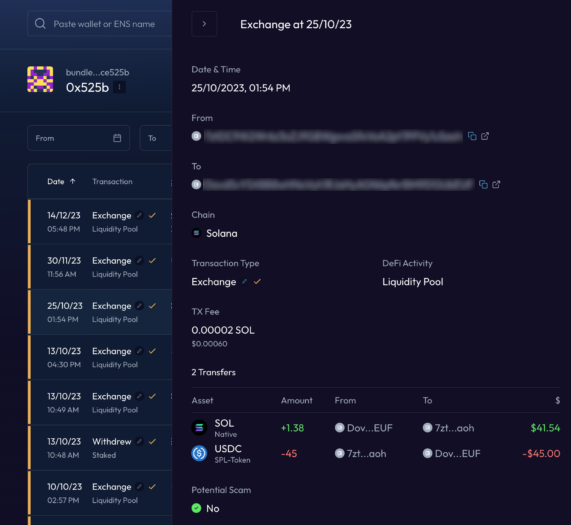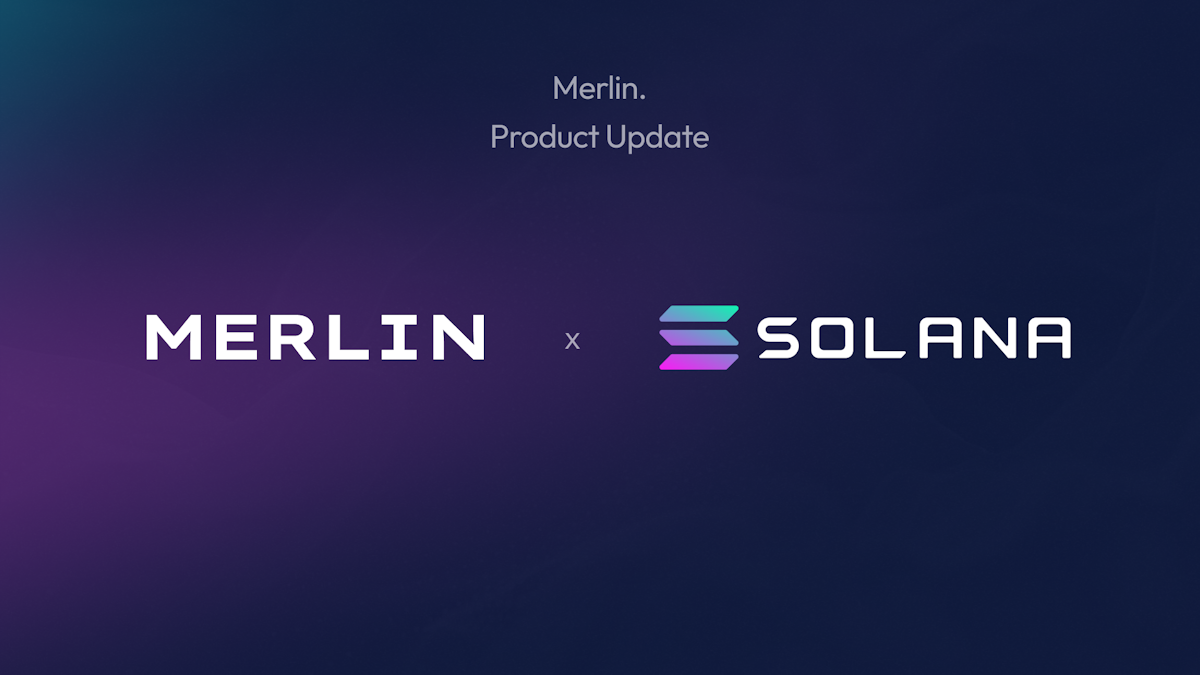MERLIN is excited to announce the integration of Solana into its on-chain transactions data solution.
Solana blockchain, renowned for its speed, efficiency, and low transaction fees, hosts a thriving NFT community and a burgeoning DeFi ecosystem, securing its position among the top 5 chains for DeFi Total Value Locked (TVL).
With the growing activity on Solana, the need for accurate reporting and accounting of on-chain transactions has become a must. Whether individuals are preparing their tax obligations or professionals are managing their on-chain portfolios and treasuries, MERLIN is committed to providing comprehensive and actionable on-chain data; to enable builders and business applications to innovate new use cases within the blockchain ecosystem without worrying about the complex data accessibility and interpretation.
What does this mean for you?
To accommodate Solana, MERLIN has packaged and adapted Solana transactions to its unified on-chain transactions data format, which now spans across 18 chains.
All token movements, whether native or SPL tokens, are encapsulated within a single transaction, enriched with identification of recipients, initiators, interacting protocols, blacklisting potential spam, moved balances, and fees, along with their USD valuations.
Solana transaction data can be accessed via MERLIN’s online web APP, available at mymerlin.io, where users can connect their wallets, monitor their wallet balances and browse all their historical Solana activities.
For backend integration within proprietary processing flows, MERLIN API offers dedicated endpoints for Solana transaction data. Visit api.mymerlin.io to create an account and start your free trial.

Managing Solana Intricacies with MERLIN
Solana’s architecture design presents challenges when tracking on-chain transactions. Solana wallet addresses, which are system-owned data accounts (SOA accounts), are intricately linked to one or several specific token accounts (PDA program-derived accounts). Each token account records the balance and related information of a particular token for a specific wallet. To track a wallet’s full token balances and movements, it’s crucial to identify all related token-accounts, which can be complex, especially considering that a wallet can have one open token account and multiple closed token-accounts for the same token.
Without a tool like MERLIN, gathering this data would require combining several data sources to first identify all addresses related to a given wallet and then querying different types of transfers to merge and obtain a complete picture of the wallet’s activity. MERLIN simplifies this process by automatically identifying associated token-accounts based on the wallet address only, and providing a unified transaction listing data ready for integration and business applications processing.
Enhancing Reconciliation with Contextual Information
MERLIN categorizes Solana transactions and provides important context information, significantly expediting the reconciliation process. This includes parameters such as the type of interaction, whether with other wallets or smart contracts. For interactions involving smart contracts, MERLIN identifies specific activities such as NFT Airdrops, LP Swaps, Staking, Derivatives, and DCA. Moreover, MERLIN recognizes the protocol name, where applicable, leveraging a catalog of known and tagged smart contract addresses continually enriched through AI/ML algorithms. This capability is invaluable for reporting entities such as accounting firms and fund administrators, ensuring accurate booking and reporting of on-chain actions.
Spam Detection
MERLIN also identifies and tags potentially blacklisted transactions. Two types of scam transactions have been observed in the Solana blockchain. The first involves wallets receiving spam tokens, often in the form of unwanted NFTs. The second type includes transactions where a wallet receives both a spam NFT and a small amount of SOL. Despite the minimal SOL amount, these transactions can impact the wallet’s SOL balance and must not be overlooked.
Pay Attention to Solana RENT
Solana accounts are subject to rent. Before end 2023, SOL would periodically be deducted from accounts with stored data, without any blockchain event tracing this token movement. However, since end 2023, this practice has ceased, and instead, accounts must maintain a rent-exempt status by holding a minimum SOL balance (approximately 0.008 SOL).
When reconciling Solana wallet balances, particularly for those active before end 2023, it’s important to note that differences between transaction-based computed balances and blockchain node balances may occur due to former rent deductions.

